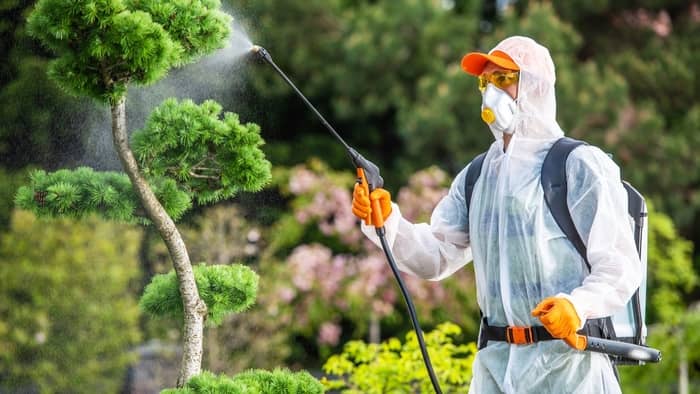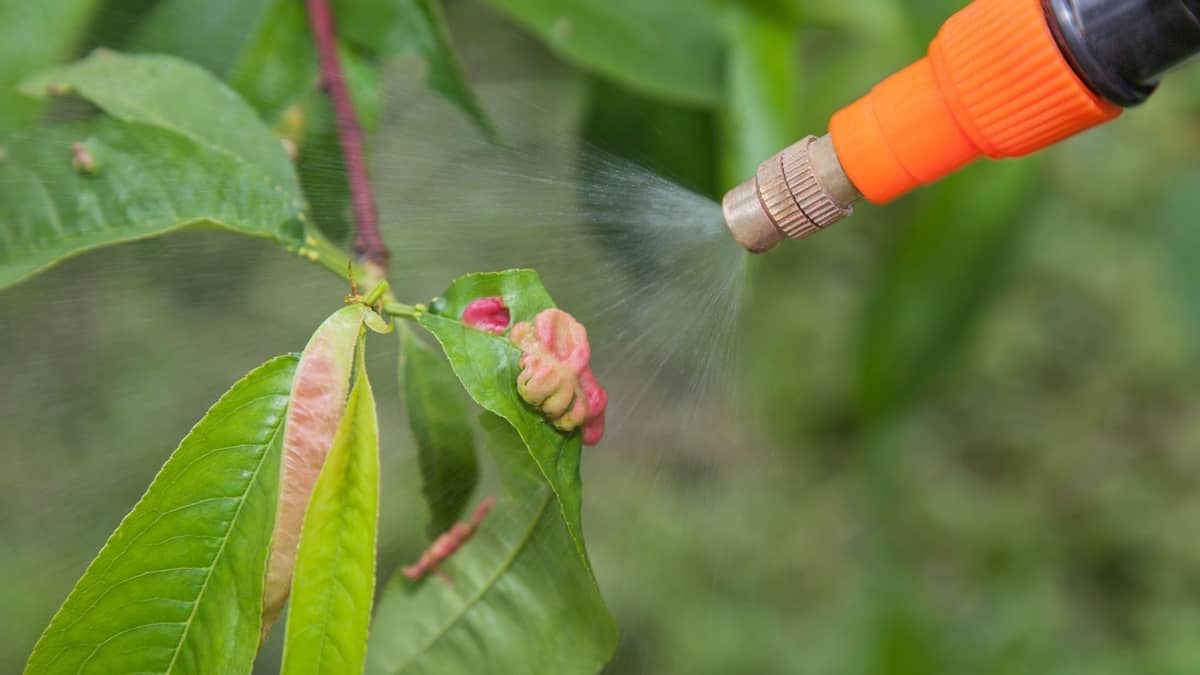Last Updated on August 22, 2022 by Griselda M.
Sulfur is one ingredient that has been in use as a pesticide product in the United States since the 1920s. One concern however is, does sulfur kill fungi?
Sulfur is a natural element that is found in rocks and is a constituent of many minerals. It can be found in natural gas and is used as a fertilizer. It is also a component of many pesticides and insecticides. Sulfur is toxic to insects, mollusks, crustaceans, reptiles, fish, and mammals. It is also used as a fungicide for crops and can be used as a fertilizer on food crops.
Is Sulfur an Effective Fungicide?
Sulfur is an effective fungicide if applied at the correct rate. It is an effective fungicide when it is used against soil-borne diseases. It is also effective against most plant diseases. It can be effective against airborne diseases such as powdery mildew as long as it is applied before symptoms occur on the plant.
It is a good idea to spray sulfur against the disease before a new crop has been planted and to repeat the application in the early spring before crops have emerged. Sulfur is also effective in parts of crops that are not in direct contact with the soil. The reason is that sulfur can be sprayed on the leaves of plants, which then carry the sulfur into the soil.
How To Apply Sulfur As a Fungicide
Sulfur can kill pathogens such as fungi via direct contact or fumigation through sulfur vapors. So sulfur fungicides are often applied to plants as a spray. Here are some of the steps you need to go through to use sulfur as a fungicide;
- Purchase Bonide sulfur plant fungicide and mix it with water. Generally, the mixing ratio used is three tablespoons of fungicide dust to one gallon of water. Mix this thoroughly but remember that the powder will not completely dissolve as sulfur does not completely dissolve in water.
- You can also opt for a ready mixed version from the store. This way you will not have to worry about mixing.
- Apply the sulfur spray to the leaf or stems of your plant/s. This fungicide will control and help prevent diseases such as powdery mildew.
- The sulfur fungicide spray will leave some residue on the plants. This is absolutely fine as it means that your plants will be protected from pests for a while after application. And you don’t have to worry about this residue washing off into the soil and possibly polluting the environment. Sulfur is a natural compound and will go back into the natural sulfur cycle.
- Spray your sulfur fungicide 10-14 days after rain as the rain may wash it away.
Considerations When Using Sulfur to Kill Fungi
It is important to take note of the conditions in which you are using the sulfur fungicide. For example. If you live in a hot climate, you should not apply it when the temperature exceeds 85°F or you will burn your plants.
If you intend to use it in conjunction with an insecticide such as neem oil, it is perfectly okay to do. However, you should wait a couple of weeks before or after applying it as it could also fry your plants.
Be careful when applying sulfur to plants. Although is mildly toxic, it can be harmful to humans and pets. Therefore ensure that you use protection when spraying to prevent respiratory irritations from inhaling the fumes. Also, ensure that your furry little friends do not ingest the fungicide while nibbling on plants in your garden.
Conclusion
So in conclusion, does sulfur kill fungi? Sulfur can be an effective fungicide depending on the application and the kind of fungi in question. If you carefully follow the instructions and employ the right frequency of applications, this natural compound can be one of the best treatments for your plant fungal infection problems.

Frequently Asked Questions
What kills fungus on plant leaves?
Fungus on plant leaves can be killed by applying organic fungicides such as those containing sulfur. Depending on the cause, such as non-ideal environmental conditions like excess moisture, humidity and insufficient sunlight, providing plants with good growing conditions can kill fungus on leaves.
How do you make homemade fungicide spray?
Mix 10 g of Epsom salt (magnesium sulfate) with 1 L of water. Add 1 g of soap flakes and stir until all the soap flakes are dissolved. Then add 1 g of liquid dishwashing detergent (like Palmolive) and mix well. Keep the mixture in a closed container and use it as needed.
How to apply sulfur dust to plants?
Sulfur dust can be applied by sprinkling the sulfur dust on the leaves of infected plants. The dust can also be mixed with water at a ratio of 3 tablespoons of dust per gallon of water and sprayed onto the plant.
What are the side effects of sulfur?
Inhaling sulfur vapor can lead to respiratory irritation in humans. Direct contact with sulfur can also cause skin irritation. It is therefore essential to use the proper protective gear when working with any sulfur-containing chemicals.
Caroline is a gardener who loves to get down to the nitty–gritty of gardening. She proudly proclaims herself as a ‘dirt worshipper‘ and can often be found deep in the garden, covered in soil and singing to her plants. As a self–proclaimed ‘plant whisperer‘, Caroline believes that plants need love and attention just like any other living thing, and she loves to give them both. When she‘s not tending to her garden, you can often find her researching the latest gardening trends, or teaching others how to make their gardens thrive



